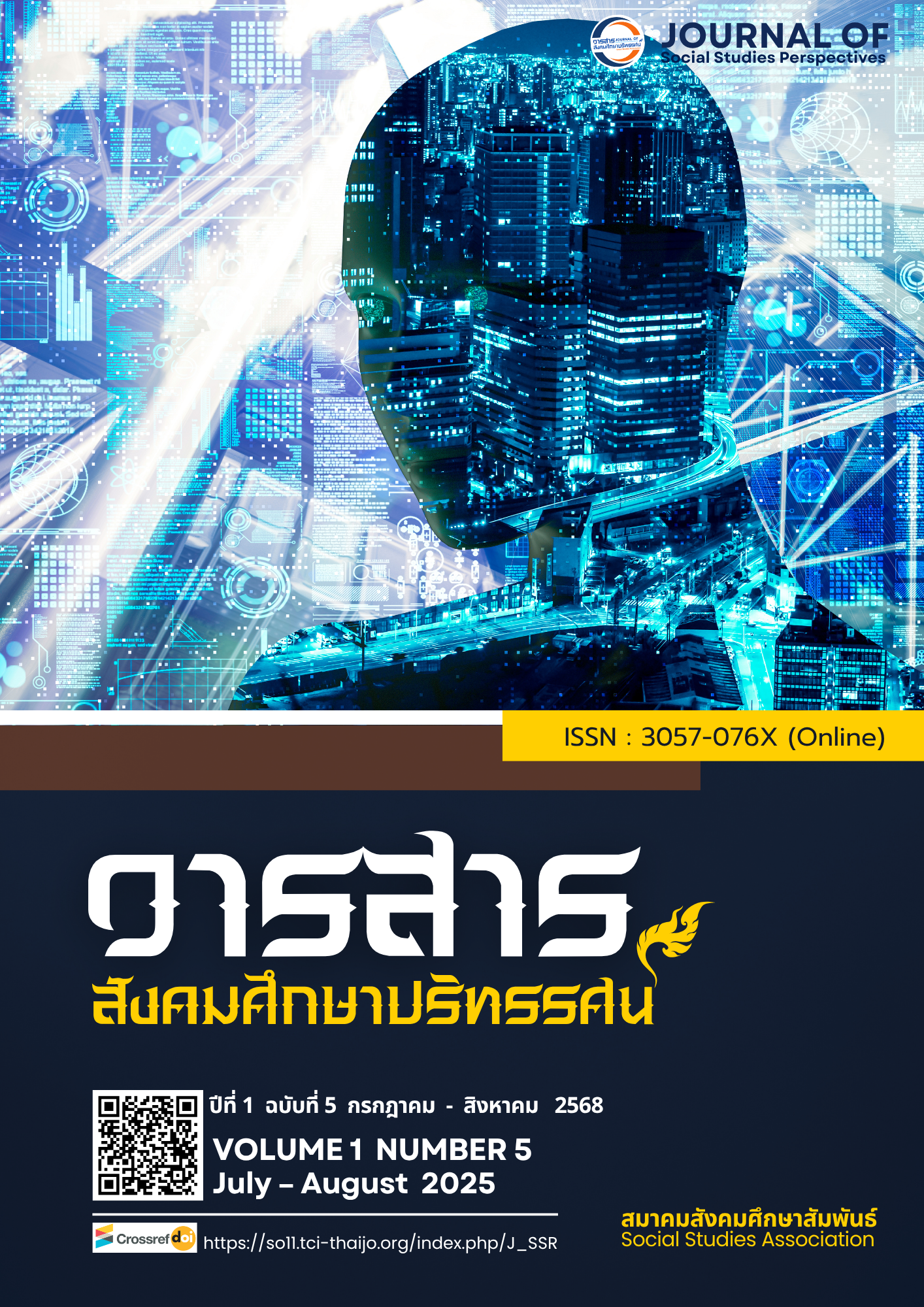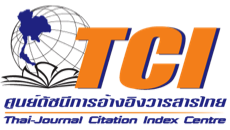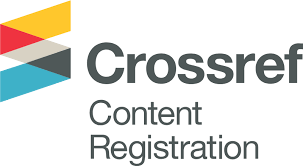บทบาทของธรรมาภิบาลต่อการป้องกันการทุจริตในงานก่อสร้าง
DOI:
https://doi.org/10.64186/jsp2471คำสำคัญ:
ธรรมาภิบาล, การทุจริต, อุตสาหกรรมก่อสร้างบทคัดย่อ
บทความวิชาการนี้มุ่งศึกษาการทุจริตในอุตสาหกรรมก่อสร้างถือเป็นปัญหาเร่งด่วนระดับโลกที่ส่งกระทบร้ายแรงต่อประสิทธิภาพโครงการ โอกาสการลงทุน และความน่าเชื่อถือของระบบเศรษฐกิจโดยรวม โดยเฉพาะเมื่ออุตสาหกรรมนี้ถูกจัดอันดับให้เป็นหนึ่งในภาคที่มีการทุจริตสูงที่สุดในโลก บทความวิชาการฉบับนี้จึงมุ่งวิเคราะห์บทบาทสำคัญของธรรมาภิบาลในการสร้างกลไกป้องกันที่มีประสิทธิภาพผ่านแนวทางหลากหลายมิติ เริ่มต้นด้วยการสร้างกลไกความโปร่งใสและการเปิดเผยข้อมูลที่ช่วยเสริมสร้างความรับผิดชอบและลดช่องทางการทุจริต ต่อยอดด้วยระบบตรวจสอบภายในและการถ่วงดุลแบบดิจิทัลที่เพิ่มประสิทธิภาพการควบคุม และขยายผลผ่านการมีส่วนร่วมของหลายฝ่ายในการสร้างเครือข่ายเฝ้าระวังและตรวจสอบ ขณะเดียวกันการบูรณาการมาตรฐาน ISO 37001 เข้ากับ Integrity Pact จะช่วยสร้างมาตรฐานสากลในการป้องกันการทุจริตที่เป็นที่ยอมรับ และเมื่อผนวกเข้ากับการสร้างวัฒนธรรมจริยธรรมและระบบการเรียนรู้ที่ยั่งยืนภายในองค์กร รวมถึงการประยุกต์บทเรียนจากประเทศอื่นที่ประสบความสำเร็จ จะทำให้เกิดเป็นระบบนิเวศป้องกันการทุจริตที่ครอบคลุมและมีประสิทธิผล ความสำเร็จของการต่อต้านการทุจริตจะเกิดขึ้นได้เมื่อมีการผสมผสานระหว่างเทคโนโลยีสมัยใหม่กับการมีส่วนร่วมของมนุษย์อย่างสมดุล โดยองค์ความรู้ดังกล่าวจะเป็นประโยชน์อย่างยิ่งสำหรับผู้กำหนดนโยบาย ผู้บริหารโครงการ และผู้มีส่วนได้ส่วนเสียในอุตสาหกรรมก่อสร้าง โดยเฉพาะในบริบทของประเทศไทยและประเทศกำลังพัฒนาที่กำลังมองหาแนวทางการป้องกันการทุจริตที่มีประสิทธิภาพและสามารถนำไปประยุกต์ใช้ได้จริงในทางปฏิบัติ
เอกสารอ้างอิง
Alotaibi, Rashed; Sohail, M; Edum-Fotwe, Francis; Soetanto, Robby (2025). Determining project control system effectiveness in construction project delivery. Loughborough University. Journal contribution. https://hdl.handle.net/2134/28494104.v1
Bizcommuity. (2025). How South Africa's construction mafia hijacked projects worth R63bn. Retrieved July 23, 2025, from https://www.bizcommunity.com/article/sas-infrastructure-crippled-can-iso-37001-fight-back-against-the-construction-mafia-695451
Brick Murtazashvili, J., Mylovanov, T., Shapoval, N., and Murtazashvili, I. (2024). The political economy of public procurement in Ukraine. Journal of Public Finance and Public Choice, 39(1), 118-138. Retrieved July 23, 2025, from
https://doi.org/10.1332/25156918Y2024D000000005
Carothers, T., and Brechenmacher, S. (2014). Accountability, transparency, participation, and inclusion: A new development consensus? Carnegie Endowment for International Peace. https://carnegieendowment.org/research/2014/10/accountability-transparency-participation-and-inclusion-a-new-development-consensus?lang=en
Cheong, B. C. (2024). Transparency and accountability in AI systems: Safeguarding wellbeing in the age of algorithmic decision-making. Frontiers in Human Dynamics, 6, 1421273. https://doi.org/10.3389/fhumd.2024.1421273
Chetthamrongchai, P., Jermsittiparsert, K., and Piriyakul, M. (2022). The role of control of corruption and quality of governance in ASEAN: Evidence from DOLS and FMOLS test. Cogent Economics & Finance, 10(1), Article 2154060.
https://doi.org/10.1080/23311975.2022.2154060
Compliance Training Group. (2023). The importance of ethics training in the workplace in 2023 and beyond. Retrieved July 23, 2025, from
CoST. (2020). Transparency, participation and accountability as the building blocks of change. https://infrastructuretransparency.org/2020/12/07/transparency-participation-and-accountability-as-the-building-blocks-of-change/consensus?lang=en
CoST. (2025). CoST impact stories. Retrieved July 24, 2025, from
https://infrastructuretransparency.org/costimpact/
de Chazal, E. (2025). Bribery in construction & how to prevent it. Skillcast. https://www.skillcast.com/blog/bribery-construction-prevention
Dr ISO Malaysia. (2024). What is ISO 37001 and why every construction company needs it for compliance and integrity? Retrieved July 23, 2025, from https://dr-iso.com.my/learn/what-is-iso-37001-and-why-every-construction-company-needs-it-for-compliance-and-integrity/
Editorial Team. (2025). Bangkok State Audit Office collapse: Arrest warrants loom for 17 executives and engineers. Thai.News.
Ewata, T. O., Sakue-Collins, Y., Ubodiom, E., and Harcourt, E. H. (2024). Stakeholders’ participation and the viability of public projects in Bayelsa State, Nigeria. Journal of Humanities and Social Policy, 10(4), 88–107. https://doi.org/10.56201/jhsp.v10.no4.2024.pg88.107
Grace, C. (2024). 5 key insights from the 2024 Ethics & Compliance Program Effectiveness Report. LRN. https://lrn.com/blog/5-key-insights-2024-ethics-compliance-program-effectiveness-report
Han, J., and Kim, C. (2025). Public sector corruption in South Asia: focusing on institutional factors with a two-step fsQCA. Humanities and Social Sciences Communications, 12, 148. https://doi.org/10.1057/s41599-025-04477-9
Hargreaves, L. (2024). Central Digital Platform set to transform public procurement. Procurement Magazine. Retrieved July 23, 2025, from https://procurementmag.com/digital-procurement/central-digital-platform
ICAEW Insights. (2025). Protecting public funds: Tackling procurement fraud. ICAEW. Retrieved July 23, 2025, fromhttps://www.icaew.com/insights/viewpoints-on-the-news/2025/jan-2025/protecting-public-funds-tackling-procurement-fraud
Jawad, S., Ledwith, A., and Khan, R. (2024). Project control system (PCS) implementation in engineering and construction projects: An empirical study in Saudi’s petroleum and chemical industry. Engineering, Construction and Architectural Management, 31(13), 181–207. https://doi.org/10.1108/ECAM-02-2022-0114
Kevkhishvili, A. (2021). Input Paper on Anti Corruption Environment in Georgia. Transparency International Georgia. Retrieved July 24, 2025, from https://libmod.de/input-paper-on-anti-corruption-environment-in-georgia-d/
Koeswayo, P. S., Handoyo, S., and Hasyir, D. A. (2024). Investigating the relationship between public governance and the Corruption Perception Index. Cogent Social Sciences, 10(1), Article 2342513. https://doi.org/10.1080/23311886.2024.2342513
Luo, M., Hwang, B.-G., Deng, X., Zhang, N., and Chang, T. (2022). Major Barriers and Best Solutions to the Adoption of Ethics and Compliance Program in Chinese International Construction Companies: A Sustainable Development Perspective. Buildings, 12(3), 285. https://doi.org/10.3390/buildings12030285
Lustrilanang, P., Suwarno, , Darusalam, , Rizki, L. T., Omar, N., and Said, J. (2022). The Role of Control of Corruption and Quality of Governance in ASEAN: Evidence from DOLS and FMOLS Test. Cogent Business & Management, 10(1).
https://doi.org/10.1080/23311975.2022.2154060
Mazher, K. M. (2025). Review of studies on risk allocation and sharing in public- private partnership projects for infrastructure delivery. Frontiers in Built Environment, 11, 1505891. https://doi.org/10.3389/fbuil.2025.1505891
Open Ownership. (2023). Nigeria adopts Beneficial Ownership Data Standard for its new national register. https://www.openownership.org/en/news/nigeria-adopts-beneficial-ownership-data-standard-for-its-new-national-register/
Opoku, A., Poshyanand, M., Elmualim, A., Kavishe, N., Mushtaha, E. S. N., and Abdalla, S. B. (2022). Corruption in the construction industry: An insight from the Thai construction sector. In A. Tutesigensi & C. J. Neilson (Eds.), Proceedings of the 38th Annual ARCOM Conference (pp. 307–316). Association of Researchers in Construction Management.
PECB. (2024). ISO 37001 essentials: A step by step guide to enhancing your organization’s integrity. PECB. https://pecb.com/article/iso-37001-essentials-a-step-by-step-guide-to-enhancing-your-organizations-integrity
Prieto, R., Boulos, P. F., Neimeyer, T. F., Bartolomeo, A. S., Pierson, G. J., DeNichilo, N. M., Warne, T. R., Thomopulos, G. G., and Boeckmann, A. L. (2025). Viewpoint: Engineering and construction ethics are not transactional. Engineering News Record. https://www.enr.com/articles/60499-viewpoint-engineering-and-construction-ethics-are-not-transactional
Suardi, I., Rossieta, H., Djakman, C., and Diyanty, V. (2024). Procurement governance in reducing corruption in the indonesian public sector: a mixed method approach. Cogent Business & Management, 11(1). https://doi.org/10.1080/23311975.2024.2393744
Transparency International. (2024). Corruption perceptions index 2024. Transparency International. Retrieved July 23, 2025, from
https://tradingeconomics.com/thailand/corruption-index
Transparency International. (2025). Corruption Perceptions Index 2024. Retrieved July 23, 2025, from https://www.transparency.org/en/cpi/2024
vić, I., and Cerić, A. (2023). Risks Caused by Information Asymmetry in Construction Projects: A Systematic Literature Review. Sustainability, 15(13), 9979.https://doi.org/10.3390/su15139979
Watts, L. L., Medeiros, K. E., Mulhearn, T. J., Steele, L. M., Connelly, S., and Mumford, M. D. (2017). Are Ethics Training Programs Improving? A Meta-Analytic Review of Past and Present Ethics Instruction in the Sciences. Ethics & behavior, 27(5), 351–384. https://doi.org/10.1080/10508422.2016.1182025
World Bank. (2024). Beneficial ownership registers: Implementation insights and emerging frontiers. Equitable Growth, Finance & Institutions Insight. https://www.worldbank.org
World Economic Forum. (2016). Why is the construction industry so corrupt – and what can we do about it? World Economic Forum. Retrieved July 23, 2025 from https://www.weforum.org/stories/2016/02/why-is-the-construction-industry-so-corrupt-and-what-can-we-do-about-it/
Zarghami, S. A. (2025). The role of integrated governance principles in the fight against corruption: A configurational analysis. Public Administration and Development, 42(3), 145-168. https://doi.org/10.1002/pad.2085
ดาวน์โหลด
เผยแพร่แล้ว
รูปแบบการอ้างอิง
ฉบับ
ประเภทบทความ
หมวดหมู่
สัญญาอนุญาต
ลิขสิทธิ์ (c) 2025 วารสารสังคมศึกษาปริทรรศน์

อนุญาตภายใต้เงื่อนไข Creative Commons Attribution-NonCommercial-NoDerivatives 4.0 International License.
บทความนี้ได้รับการเผยแพร่ภายใต้สัญญาอนุญาต Creative Commons Attribution-NonCommercial-NoDerivatives 4.0 International (CC BY-NC-ND 4.0) ซึ่งอนุญาตให้ผู้อื่นสามารถแชร์บทความได้โดยให้เครดิตผู้เขียนและห้ามนำไปใช้เพื่อการค้าหรือดัดแปลง หากต้องการใช้งานซ้ำในลักษณะอื่น ๆ หรือการเผยแพร่ซ้ำ จำเป็นต้องได้รับอนุญาตจากวารสาร










